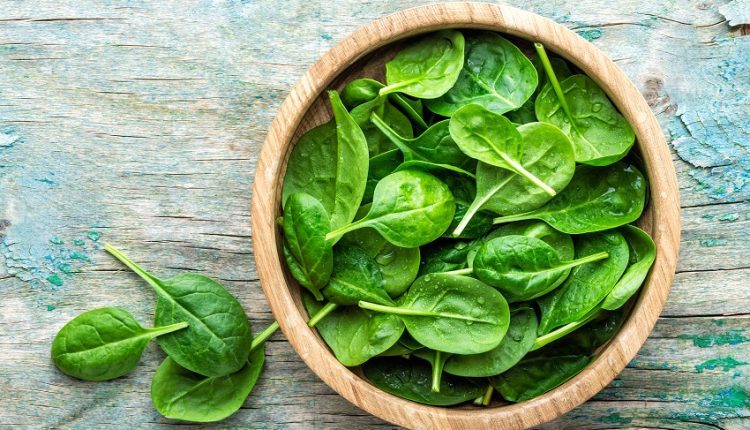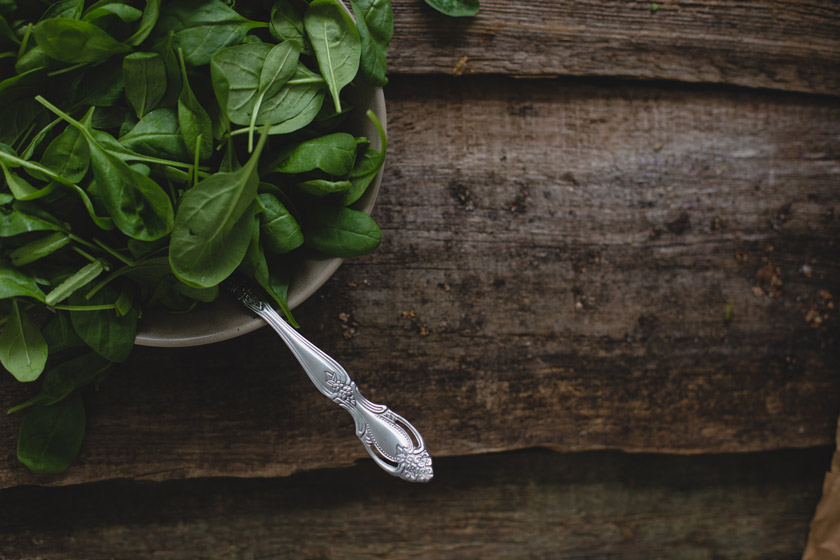
Spinach: An Awesome Vegetable for Seniors
Spinach is one of the vegetables that affects the health of seniors. This vegetable is rich in a particular type of antioxidant called flavonoids that prevent cancer, diabetes in seniors, and various diseases, all of which threaten us in old age. But we can avoid many of these problems by adding this beneficial vegetable to our diet. In this article in Living Maples Magazine, we will introduce the health benefits of spinach for seniors.
Health Benefits of Spinach for Seniors
Spinach has anti-inflammatory properties and is a powerful antioxidant. Due to its low calorie and high antioxidant profile, you can consider it one of the most nutritious foods. Studies have shown that spinach helps protect the central nervous system, reduces cell inflammation, and delays seniors’ ageing process.
Spinach also contains carotenoid compounds that have a protective role and prevent cancerous cell formation in the body. These compounds play an essential role in reducing the risk of cancer, diabetes, neurodegenerative diseases and the prevention of obesity. The phytonutrients in spinach contain carotenoids such as beta-carotene, lutein and xanthine, which are also antioxidants found in vegetables such as carrots, cabbage and kale. Phytonutrients are bioactive chemicals in foods that slow down the ageing process and reduce the risk of many diseases.

Spinach is also a rich source of flavonoids. Flavonoids are potent antioxidants that protect our bodies against free radicals that are harmful to our cells. These beneficial compounds make spinach the best anti-ageing food.
In addition to being high in antioxidants, spinach also contains significant amounts of vitamins and minerals. Spinach is a good source of vitamin C, vitamin A, manganese, zinc and selenium. With these minerals’ help, this vegetable has become a very effective substance for protecting various body organs and their function.
Preventing Cancer
Studies have shown that eating leafy vegetables such as spinach, broccoli, kale, brussels sprouts, and turnips reduces cancer risk in old age. Of course, these vegetables have a more significant role in preventing colon cancer, breast cancer and prostate cancer. Spinach can slow cancer cells’ formation because it has antioxidants such as neoxanthin and violaxanthin, preventing lung damage and reducing oxidative stress. Researchers have found that carotenoids in spinach prevent mutations in cells. Cell mutations cause cancer cells to grow and develop.
Studies also show spinach is an anti-cancer agent because it removes carcinogens, detoxifies the body, reduces inflammation, and reduces free radical damage in the body.
Protecting Against Heart Disease
Inflammation is one of the high-risk factors in seniors that signify heart disease, and spinach reduces it. Researchers have studied spinach properties and concluded that this vegetable prevents heart disease by improving nitric acid’s function in the body. Nitric acid is involved in improving blood circulation, lowering blood pressure and vascular health. Furthermore, spinach contains two antioxidants called neoxanthin and violaxanthin, which researchers say broadly reduce inflammation in the body.

Spinach is also useful in treating vascular diseases such as atherosclerosis and high blood pressure. The protective compounds found in spinach cleanse the harmful substances produced in the arteries’ walls, lower blood cholesterol levels, fight high blood pressure, improve blood circulation in the body and keep the body strong and healthy.
The fibre in spinach also lowers blood cholesterol and decreases glucose uptake. Together, these factors significantly reduce the risk of heart attack or stroke.
Strengthening Immune System
Spinach is a rich source of vitamins A and C, both of which are antioxidants. These two vitamins are excellent in strengthening the immune system. The antioxidant properties of vitamins C and A strengthen the body’s immune system against bacteria, viruses, toxins and other harmful and pathogenic invaders. Spinach boosts seniors’ immune systems by lowering the inflammatory response, reducing cell damage, and keeping the digestive system healthy.
These antioxidants are also useful in preventing more severe conditions such as free radical damage. Free radicals in the body can cause various diseases, including heart disease, cancer, autoimmune diseases and cognitive impairment.
Preventing Diabetes

Spinach contains beneficial steroids, and studies have shown that these steroids increase our glucose metabolism, so blood sugar levels remain stable and do not rise. It is useful for diabetes in seniors and other syndromes that disrupt cellular metabolism. These steroids reduce the components that reduce fat storage for the insulin hormone to the lowest possible level.
Improving Eyesight
As we age, our eyesight weakens. But the good news is spinach can enhance eyesight. Spinach contains vitamin A in the form of carotenoids. Spinach improves eyesight by maintaining eye components such as the retina, the macula, and the cornea. The two most essential catenoids in spinach are lutein and xanthine. These two carotenoids are antioxidants that play a crucial role in keeping the eyes of seniors healthy.
Spinach consumption is directly related to a reduced risk of eye diseases, such as age-related macular degeneration, affecting seniors. It is because spinach xanthine filters out harmful sunlight as it enters the cornea. Other spinach catenoids also protect the vulnerable tissues of the retina from oxidative stress. Oxidative stress causes complications such as blindness and cataracts in seniors.
- Read More: 5 Nutritious Soup Recipes for Seniors
Improving Bone Health in Seniors

Spinach is a good source of vitamin K, which is one of the building blocks of bone. This vitamin is essential for keeping the body’s skeleton healthy and is especially useful for preventing bone loss in seniors and preventing osteoporosis from breaking down. Vitamin K is also involved in preventing blood clots and eliminating inflammation in the body.
Improving Skin Health of Seniors
Ultraviolet rays can cause skin cancer or damage the skin’s appearance by contacting a person’s skin. Thus vitamin C and A in spinach repair damage caused by ultraviolet rays. If you include antioxidant foods, such as spinach, you will increase skin cells’ production and stimulate collagen production in the skin in your daily diet. Collagen is one of the ingredients in the skin involved in improving the skin’s elasticity and beauty. Thus, eating spinach and vegetables containing antioxidants is an excellent way to delay skin ageing and increase skin health.
- Read More: The Best Skin Care Tips for Seniors
Fighting Dementia and Neurological Disorders
Studies show that consuming vegetables such as spinach is effective in slowing down the ageing process. Spinach can protect the brain against diseases in old age and even repair the damage caused by a stroke. Spinach antioxidants are effective in reducing inflammation and oxidative stress. Over time, these disorders can lead to cognitive impairment, decreased body function, and impaired motor skills.

Researchers in a study on the effects of spinach on seniors found that spinach reduces cognitive impairment symptoms caused by old age by regular consumption of this food. Spinach also eliminated problems in motor skills. The spinach-fed group performed better than the control group in the activities provided to assess behavioural skills and excelled in cognitive tests. This experiment shows spinach antioxidants delay the onset of mental and physical signs of ageing.
Final Word
We learned about the benefits of spinach for the elderly and its incredible health benefits by doing so. As a whole, this green superfood contains many nutrients that are beneficial to seniors’ health.
I completely agree with this article! Spinach is such a fantastic vegetable, especially for seniors who need to maintain good health. It’s high in vitamins A and C, essential for eye and skin health, and contains calcium for strong bones. I love adding spinach to my salads or sautéing it as a side dish. It’s such a versatile and tasty vegetable!
As someone who cares for an elderly parent, I can attest to the benefits of spinach for seniors. It’s a great way to incorporate more greens into their diet and help them maintain their health. I like to blend spinach into smoothies or soups to make it easier for my parent to consume. Choosing organic spinach to avoid harmful pesticides is also a good idea. Thanks for sharing this informative article!